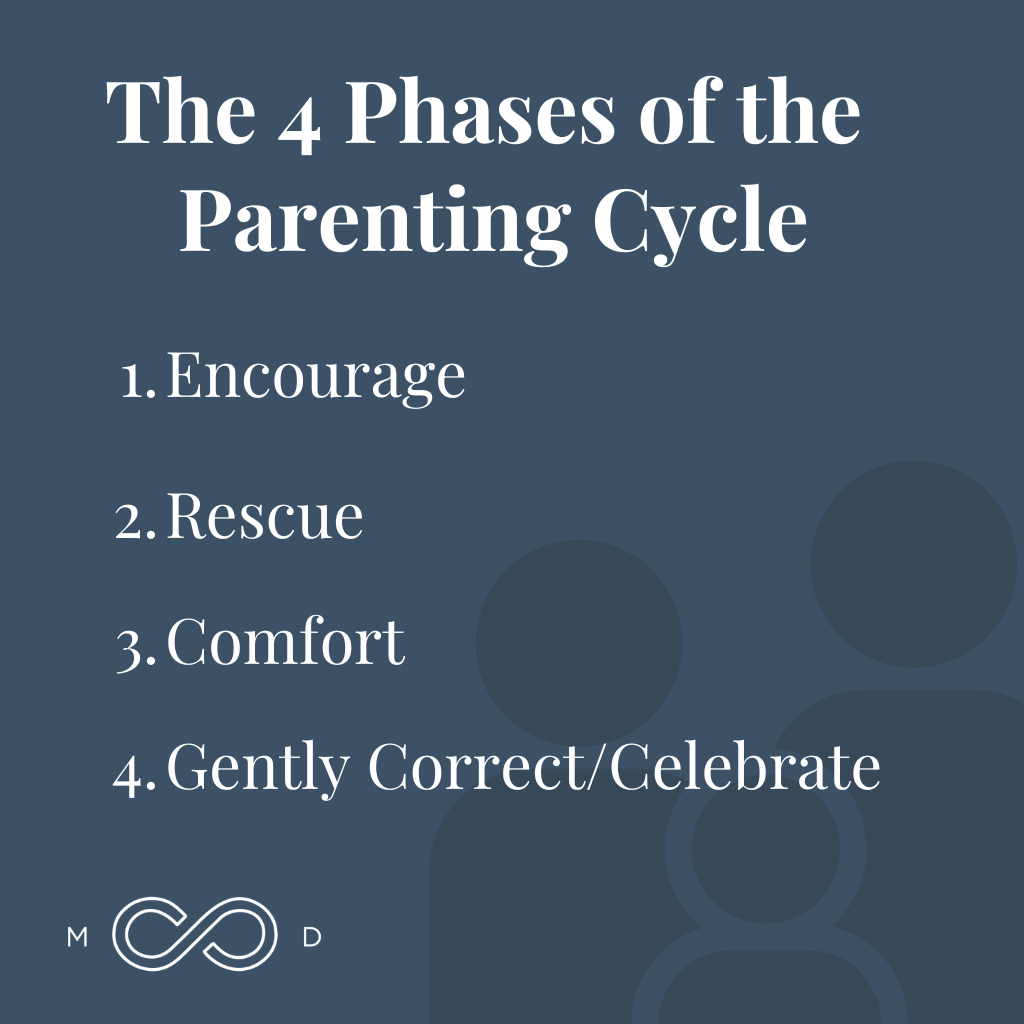Download file | Play in new window | 00:26:20 |
In our latest podcast, we revisited the herculean task of addressing how to parent yourself — or reparent yourself, as the case may be.
Parenting yourself is a concept I learned from my friend, brilliant therapist Dr. Brian Hooper. According to Dr. Hooper, the quality of parenting we receive as children profoundly impacts our ability to handle challenges later in life.
By examining the patterns in our lives with curiosity — not with judgment — we begin to discover where suboptimal aspects of our upbringing impact us in subtle yet important ways. And once we identify them, we can learn to reparent ourselves in those areas.
This relatively new idea has the potential to offer important, even revolutionary, insights into our mental, social, professional, and even physical well-being. So let’s discuss what it is and how to identify opportunities for reparenting yourself.
What Is Parenting, or Reparenting, Yourself?
The idea behind parenting ourselves is that we’re born without the skills to navigate life. We then receive those skills through our parents (or guardians) as we grow up.
An optimally parented person is often naturally solution-oriented and able to navigate challenges and blind spots with grace. They’re able to reframe negative thoughts into healthier perspectives. Instead of mercilessly berating themselves when things go wrong, they use adversity to grow and become stronger.
Unfortunately, not everyone receives optimal parenting. And the suboptimal parenting experiences we have as children become imprinted within us, internalized as a kind of behavioral default.
It’s difficult for most of us to notice these subjective deficits without some guidance. Once we become aware of them as adults, however, we can begin to “reparent” ourselves in those areas, reverse engineering healthy patterns to navigate a better way forward.
The 4 Phases of the Parenting Cycle
This cycle of parenting — or of how to reparent yourself later in life — includes four principal phases, or pillars: Encourage, Rescue, Comfort, and Gently Correct and Celebrate. By understanding and implementing these four key phases, we learn to better support our own growth and development.
Let’s briefly define each phase:
Phase 1: Encourage
The first step in all parenting is to encourage a child to explore, try new things, and take risks. Encouragement provides children with the confidence and motivation necessary to step out of comfort zones and embrace new experiences.
Phase 2: Rescue
Exploration naturally leads, in some cases, to injury or danger. When dangers arise, whether physical, emotional, or otherwise, the role of the parent is to rescue the child. This could mean pulling them out of a harmful situation or guiding them so they manage it safely.
Effective rescuing minimizes trauma while teaching children to recognize danger for themselves.
Phase 3: Comfort
After an adverse experience, a child needs to be comforted. This means having an adult who soothes their pain, helps them process emotions, and reassures them that they are safe and loved. This phase teaches emotional regulation and resilience.
Phase 4: Gently Correct and Celebrate
The final phase is to gently correct mistakes and celebrate successes. Constructive feedback helps children learn from their experiences, while celebration reinforces positive self-images and behaviors. This dual approach promotes continuous growth and self-improvement.
When effectively implemented by parents, these phases become the bedrock of a child’s internal life, which they use to navigate challenges all the way into adulthood. On the other hand, suboptimal parenting leads to deficiencies in these skills that persist into later life.
How to Identify Opportunities for Reparenting Yourself
As I mentioned, it’s often difficult to identify the need for reparenting yourself without a little guidance.
In our practice, we’ve had the opportunity to discover some predictable patterns in the lives of otherwise highly successful, driven, capable people. Below, I’ll share some of the ways we’ve observed suboptimal parenting manifest in adults according to each phase.
Suboptimal Encouragement
Adults who lacked encouragement as children often struggle with exploring new activities, opportunities, or ideas. They may have a narrow worldview, avoid risks, and stick to familiar routines. Over time, this severely limits a person’s capacity for personal and professional growth.
Suboptimal Rescue
A deficiency in the rescuing phase may lead to an inability to recognize and avoid dangerous situations. By the time this person notices an issue, it’s already developed into a full-fledged “danger.”
Such people frequently find themselves in physical, emotional, or professional jeopardy without realizing it. They seem to lack the radar to detect and avoid adverse scenarios, leading to repeated negative experiences.
Suboptimal Comfort
Without a proper foundation in being comforted, adults often struggle with emotional regulation. They experience chronic anxiety, overwhelm, emotional meltdowns, or panic attacks because they lack effective coping mechanisms to process and handle those feelings.
Suboptimal Correction and Celebration
On one hand, failure to receive constructive correction leads to an inability to learn from past experiences. This person may repeat the same mistakes over and over, or they may have trouble cultivating behaviors that lead to success.
On the other hand, a lack of celebration produces a perfectionist mindset. In this state of mind, people find it difficult to celebrate successes or acknowledge progress, creating a perpetual sense of inadequacy.
More on Comfort and Emotional Regulation
Jen shared that she used food as a way to self-soothe after her parents’ divorce. Now that she’s become aware of it, she has to reparent herself by consciously recognizing when she’s heading to the pantry out of stress, anxiety, or overwhelm. In other words, she stops to question why she’s reaching for snacks.
This pattern commonly appears in people who use alcohol, drugs, or even pornography to self-soothe. They never developed healthy internal tools to cope with their emotions, so they reach for something external.
This connection between addictive behaviors and the need to soothe pain is crystal clear. These behaviors provide short-term relief and numb the immediate discomfort, but they don’t address the root of the emotional pain. Instead, they actually exacerbate the problem, fueling a cycle of dependency and further emotional distress.
An additional long-term difficulty here is that people who never received comfort as children usually struggle to comfort others. Because they lacked a model of healthy emotional regulation to draw from, they repeat the cycle in their relationships with others, including their own children.
But we’re going to break the cycle by dropping a little life hack courtesy of a dear friend of Jen’s, who shared with her the 3 Rs: Recognize, Release, and Refocus.
Self-Soothing With the 3 Rs
1. Recognize
The first step in emotional regulation is recognition — being aware of your emotional state and understanding the triggers that lead to certain feelings or behaviors. Self-awareness is critical here; without it, emotions can be overwhelming and uncontrollable.
For instance, if you notice that you’re reaching for food when stressed, take a moment to pause and ask yourself what’s really going on. Are you anxious about a deadline? Feeling lonely or overwhelmed? Be honest with yourself — you know your history better than anyone.
2. Release
Once you recognize the emotion, the next step is to release it. This doesn’t mean suppressing or ignoring your feelings but rather finding healthy ways to express and let go of them. Emotional release can take many forms, from conversation with a friend to artistic creativity, exercise, and meditation.
Releasing emotions helps prevent them from building up and festering inside you. This has a two-pronged effect: It allows you to process your feelings in a constructive manner, and it reduces the likelihood you’ll turn to unhealthy coping mechanisms.
3. Refocus
After releasing the emotion, the final coup d’état is to refocus your energy and attention on something positive or productive. Refocusing helps to shift your mindset, diverting precious cognitive resources to a higher calling. Instead of dwelling on the negative, you embrace a more balanced and optimistic perspective. Set new goals, engage in joyful activities, practice gratitude and mindfulness, etc.
Returning to our previous example, after addressing the stress that led you to the pantry, you might choose to take a walk, read a book, or work on a painting. Refocusing helps reinforce healthier habits and promotes a sense of accomplishment and well-being.
How to Reparent Yourself: Bringing It All Together
A core tenet of fulfillment in the human experience is growth. However, growth occurs at the edges of our comfort zones. If we learned during childhood that it was unsafe to explore these edges — because no one encouraged, rescued, comforted, or celebrated with us — we tend to avoid these areas as adults.
Such avoidance stifles personal growth over the long haul and can lead to a stagnant, unfulfilling life. But by understanding and implementing the four phases of parenting in our own lives, we break free from these limitations.
Reparenting Encouragement
Encouragement is about fostering a mindset of curiosity and willingness to try new things. As adults, we can encourage ourselves by setting small, achievable goals and celebrating each step forward. Embracing a growth mindset, where we view challenges as opportunities to learn and grow, acts as a momentum multiplier. And surrounding ourselves with supportive people who cheer us on creates a positive feedback loop.
Reparenting Rescue
Rescuing ourselves involves recognizing when we’re in harmful situations and taking steps to protect ourselves. Sometimes this means setting boundaries in relationships, avoiding toxic environments, or seeking professional help when needed. Learning to listen to our instincts and act on them is an essential part of self-preservation.
Reparenting Comfort
Comforting ourselves requires developing healthy coping mechanisms for dealing with stress and emotions. This can include mindfulness practices, physical activity, creative outlets, and seeking support from friends, family, pastors, or therapists.
On the therapy side, I know not everyone is comfortable seeking out counseling. But good therapists truly have an unparalleled ability to help people understand their feelings and navigate and process them in a healthy way.
Reparenting Gentle Correction and Celebration
Reflecting on our experiences, both positive and negative, allows us to learn and grow. Gentle self-correction involves being honest with ourselves about our mistakes without harsh self-criticism.
Celebrating our achievements, no matter how small, helps reinforce positive behaviors and builds self-esteem. Keeping a journal or sharing our successes with others helps us stay motivated and focused on our progress. And, of course, remember to measure progress from where you started, not against where you’re headed.
Final Thoughts
One pitfall that can accompany the concept of reparenting yourself is the temptation to blame parents for the negatives in our adult lives.
While it’s true that they may not have passed on the pinnacle of these four parenting skills to their children, it’s also true (in general) that they did the best they could with the tools they had at the time. Remember, too, that your parents themselves may have needed a little reparenting but had no one to guide them through the process.
Rather than getting caught in a harmful spiral of blame and anger, simply recognize where your experience was suboptimal and begin to work on breaking the cycle. Then, you can be the person to break the cycle, optimally parenting your own children and passing on the skills for growth to the next generation.

Dr. Aaron Wenzel is a concierge physician specializing in the care of fast-moving entrepreneurs, executives, and public figures in the Nashville, TN area. Dr. Wenzel’s diverse life experience and extensive training in family medicine, emergency care, nutrition, and hormone replacement therapies give him the unique platform to provide unmatched care for his patients.








